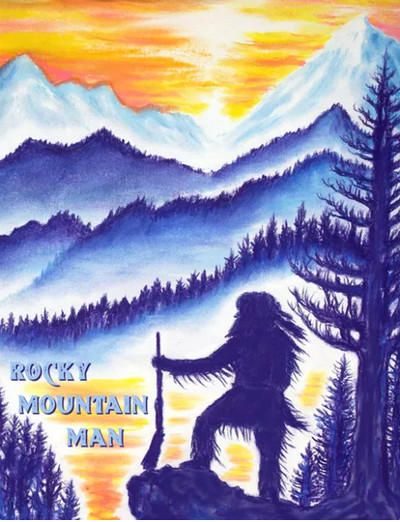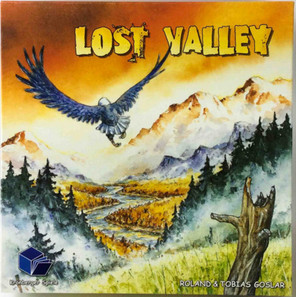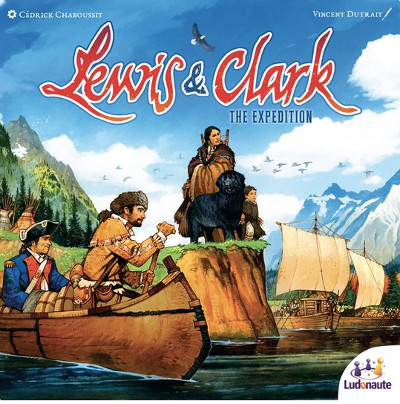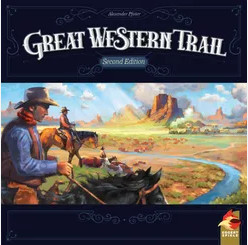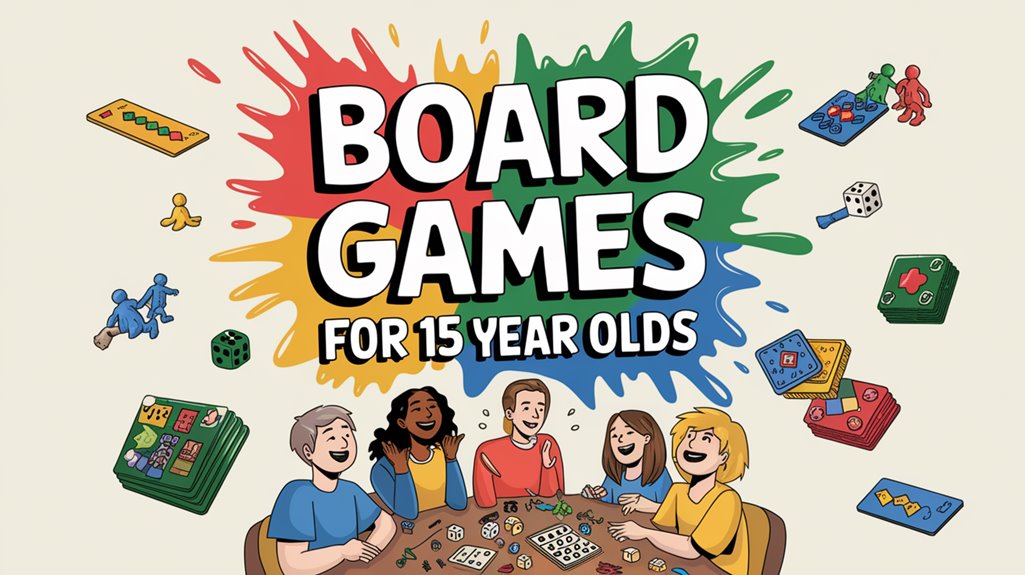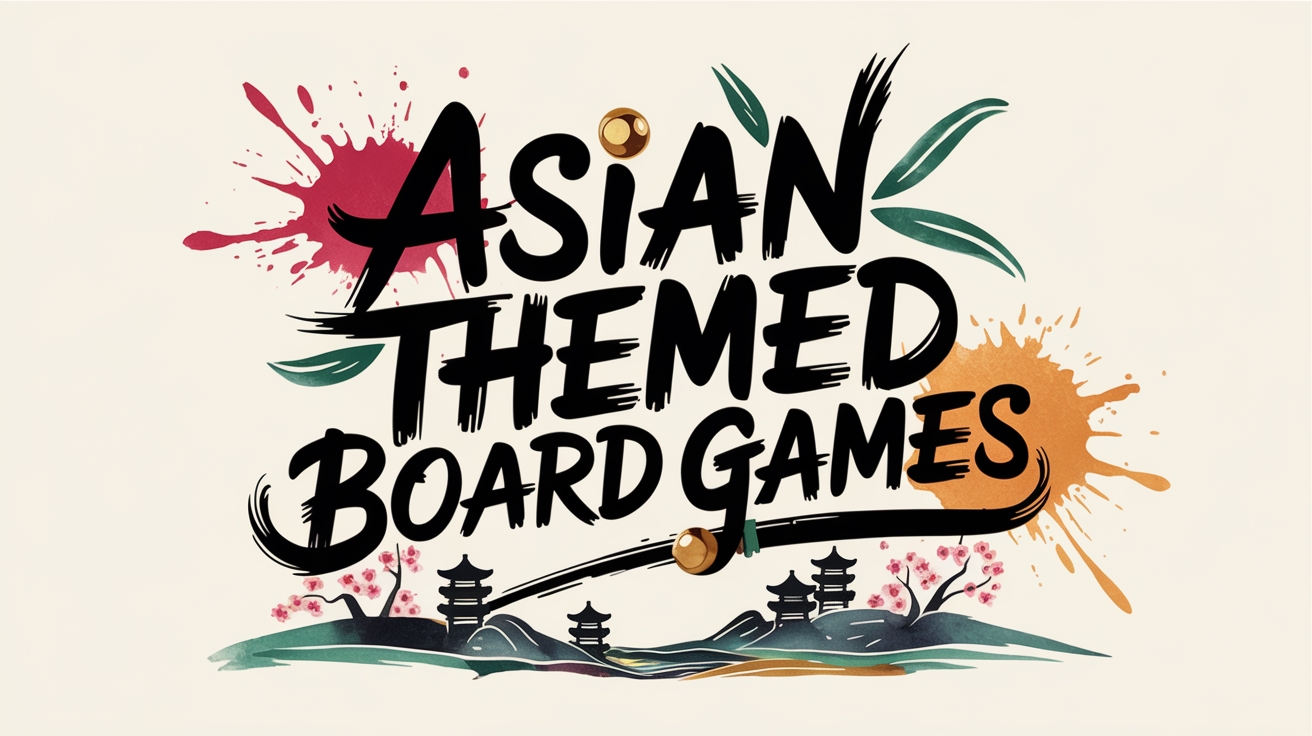Diving into board games reminiscent of Oregon Trail (1981) reveals titles like Rocky Mountain Man, Lost Valley, and Lewis & Clark: The Expedition. These games immerse players in historical exploration and strategic challenges, mirroring the trials of early American pioneers. Let’s explore how each captures the essence of exploration and survival, standing out in the realm of historical board games.
Rocky Mountain Man (2020)
Rocky Mountain Man (2020) is a detailed simulation of early 19th-century mountain exploration, where players navigate the Rocky Mountains, manage resources, and overcome challenges.
Players lead crews of Mountain Men, each with unique skills, through activities like trapping, hunting, and exploration around 1825. The game involves mapping new hexes, collecting valuable beaver pelts, and discovering routes to landmarks such as the Great Salt Lake and the Colorado River.
Players must strategically manage their crew to handle dangers and encounters in the wild. Rocky Mountain Man can be played solo or with another player in a simultaneous solitaire style, progressing at individual paces through turns and phases. Victory conditions vary based on Victory Points in two-player mode and specific goals in solitaire play, offering a comprehensive experience of early American exploration.
Lost Valley (2004)
Lost Valley (2004) plunges players into the challenging journey of Klondike prospectors during the Gold Rush, where they must navigate harsh conditions and manage limited resources in their pursuit of wealth. Against the backdrop of 1890s financial crises and bank failures, the game vividly portrays the desperation and ambition that lured thousands to the Yukon.
Lewis & Clark: The Expedition (2013)
In Lewis & Clark: The Expedition (2013), players lead their own expedition to the Pacific Ocean, managing resources and recruiting characters strategically. The game features hand-building mechanics, where cards serve dual purposes for actions or activations. Balancing resource management and recruitment, players aim to be the first to reach the Pacific Ocean by optimizing crew and card usage. With a player count of 1-5 and a playing time of 120 minutes, the game offers historical adventure and strategic depth for ages 14 and up.
Great Western Trail (2016)
In Great Western Trail (2016), players experience the strategic world of 19th-century cattle ranching by managing herds efficiently and navigating obstacles along the trail. Players guide cattle from Texas to Kansas City to be shipped by train, earning money and victory points. Staff hiring is key, with cowboys boosting herds, craftsmen building useful structures, and engineers optimizing the railroad. With 2 to 4 players and a 75 to 150-minute playtime, this game offers a captivating experience for ages 12 and up. Awards include the 2018 UK Games Expo Best Board Game (European Style) Judges Award and the 2018 Gra Roku Advanced Game of the Year. Aim for the most victory points to triumph in this immersive and challenging game.
Westerly (2014)
In the co-operative game Westerly (2014), players guide characters on a perilous journey westward to California, facing challenges like injury, abandonment, and cannibalism. They explore tracks – North, South, and West – encountering bandits, natives, predators, and hazards. With humor and tough decisions, 2-6 players navigate the game in approximately 90 minutes, creating a memorable narrative of survival and collaboration.
Age of Exploration (1994)
In Age of Exploration (1994), players lead European expeditions in the 15th and 16th centuries, recruiting famous explorers like Columbus and Magellan. They must outfit and navigate expeditions, facing sea dangers and land encounters. The game accommodates 1 to 6 players and lasts around 180 minutes, offering a deep and immersive experience for fans of historical and adventure board games like Oregon Trail.
Crossing The Plains (1984)
Crossing The Plains (1984) is a pioneer trek simulation game that allows players to experience the journey of the first Mormon pioneers to the Salt Lake Valley. Created by Allan K. Burgess and Max H. Molgard and published by the Deseret Book Company, this game offers an educational and engaging experience for 2 to 6 players, aged 8 and up, lasting about 60 minutes. The goal is to earn the most points by reaching the Salt Lake Valley, navigating challenges, managing resources, and making strategic decisions. The game includes a board, playing pieces, dice, cards, money, supply sheets, and instructions, all designed to reflect the trials faced by the pioneers.
Source of the Nile (1978)
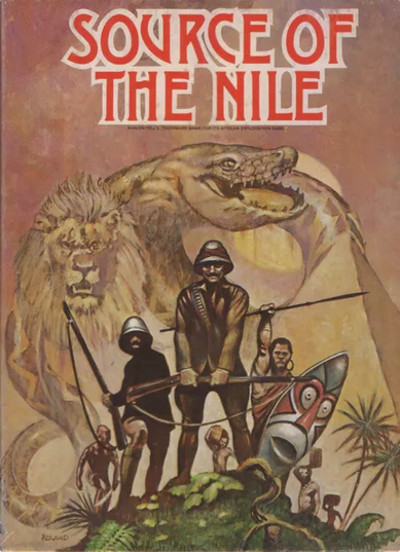
Source of the Nile (1978) is an interactive board game set in early 19th-century Africa, combining strategy, luck, and historical themes. Players explore uncharted territories, uncovering terrain and tribes while managing risks and rewards. The erasable mapboard allows for recording expeditions with wax crayons, with the stakes high as explorer deaths result in erasure of findings. Publishing discoveries secures points, while fundraising through chance cards adds to the strategic depth. This game offers a captivating experience for fans of exploration and adventure.


